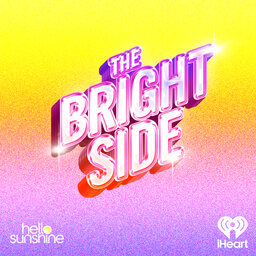Reese's Book Club Author Rainbow Rowell on “Slow Dance”
Best known for her hit young adult novels "Eleanor & Park" and "Fangirl," Rainbow Rowell has been called “the best thing to happen to young adult literature in ages” by Vox. Today, she joins The Bright Side to discuss her new book “Slow Dance,” the Reese’s Book Club pick for August.
The New York Times bestselling author opens up about who inspired the characters in her latest novel, the health scare that made her think she might never write another book, and the vital importance of unflinching storytelling for young people, especially as her early work continues to be banned. You can find “Slow Dance” on Apple Books or wherever you get your books.
Listen to Rainbow’s playlist for “Slow Dance” here.
In 1 playlist(s)
The Bright Side: A Hello Sunshine Podcast
The Bright Side, the hit podcast from Hello Sunshine, is back for a brand new season! Every Monday, …Social links
Follow podcast
Recent clips

Self-Care Is a Lie We’ve Been Sold—Dr. Pooja Lakshmin Explains What Actually Heals Us
46:53

Understanding GLP-1 Medications: Hormones, Menopause & the Science Behind the Headlines with Dr. Rocio Salas-Whalen
38:19

Replay: Karen Pittman on The Morning Show's Wild New Season and Leaving Imposter Syndrome Behind
41:46
 The Bright Side: A Hello Sunshine Podcast
The Bright Side: A Hello Sunshine Podcast